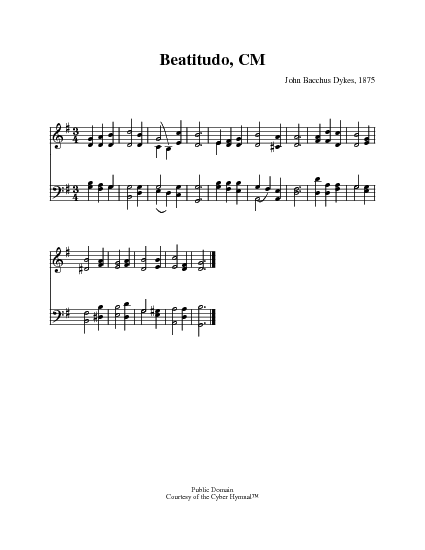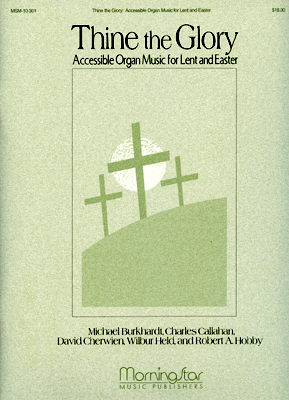O Thou from Whom all goodness flows. T. Haweis. [Christ our Hope in Affliction.] This hymn is given at the close of a tract the title of which is:—
The Reality and Power of the Religion of Jesus Christ Exemplified in the Dying Experience of Mr. William Browne of Bristol, who departed this Life October 16, 1791. Aged 70 .... Bristol. Printed by John Rose, No. 21 Broadmead .... 1791. Price Two Pence.
In the account given in this tract of Browne's last illness, it is said he made this remark to a gentleman who called upon him:—
"I have chosen my funeral text and hymn Remember me. He hath remembered me with that, favour which He beareth to His own people. The Lord will perfect that which concerneth me. Thy mercy, O God, endureth for ever: fulfil the work of Thine own hands " (p. 8).
From this it is tolerably clear that the hymn appeared before 1791, in some book or magazine which we have failed to trace. On p. 12 of the tract the hymn is given as follows;—
"Hymn."
Composed by the Rev. Mr. Haweis, Sung after his [Browne's] Funeral Sermon.
“O Thou from Whom all goodness flows
I lift my heart to Thee:
In all my sorrows, conflicts, woes,
Dear Lord, ‘Remember me!'
”While on my poor distressed heart
My sins lie heavily,
My pardon speak, new peace impart,
in love 'Remember me!'
"Temptations sore obstruct my way,
To shake my faith in Thee;
0 give me strength, Lord, as my day;
For good 'Remember me!'
"When in desertion's dismal night,
Thy face I cannot see;
Then, Lord, arise with glorious light,
And still ‘Remember me!'
"If on my face for Thy dear name,
Shame and reproaches be,
All hail, reproach, and welcome shame,
If Thou ‘Remember me!'
“The hour is near, consign'd to death
I own the just decree;
Saviour, with my last parting breath,
I'll cry, 'Remember me!"
In Haweis's Carmina Christo, 1792, No. 42, it is given in another form thus:—
Stanza i. As above.
Stanza ii. "When groaning on my burden'd heart"; and as above.
Stanza iii. 1. 2. "And ills I cannot flee." Lines 1, 3, 4 as above.
Stanza iv. "Distrest with pain, disease, and grief This feeble body see; Grant patience, rest, and kind relief, Hear! and remember me."
Stanza v. As above.
Stanza vi. As above.
This form of the hymn was repeated in several of the older collections. In Cotterill's Selection, 1819, the hymn underwent another change. As No. 359 it reads :—
"0 Thou, from Whom all goodness flows
I lift my soul to Thee;
In all my sorrows, conflicts, woes,
Good Lord, remember me.
"When on my aching, burden'd heart
My sins lie heavily,
Thy pardon grant, new peace impart;
Good Lord, remember me.
"When trials sore obstruct my way,
And ills I cannot flee,
O let my strength be as my day;
Good Lord, remember me.
"If, for Thy sake, upon my name,
Shame and reproach shall be,
All hail reproach, and welcome shame!
Good Lord, remember me.
"When worn with pain, disease, and grief,
This feeble body see;
Grant patience, rest, and kind relief;
Good Lord, remember me.
"When in the solemn hour of death
I wait Thy just decree,
Be this the prayer of my last breath,
Good Lord, remember me.
"And when before Thy throne I stand,
And lift my soul to Thee,
Then with the saints at Thy right hand,
Good Lord, remember me."
This form of the hymn was repeated by J. Montgomery in his Christian Psalmist, 1825, No. 188. As Montgomery assisted Cotterill in compiling Cotterill's Selection of 1819, and altered several hymns by other writers for the same, it seems (from the fact that he reproduced the same text in his Christian Psalmist) that the alterations were made by him, and not by Cotterill. Montgomery attributed the original hymn to "T. Humphries." The text and the ascription of authorship were copied by Bickersteth in his Christian Psalmody, 1833, by Elliott in his Psalms & Hymns, 1835, and others, and were for a long time accepted as correct. Cotterill's text of 1819 (sometimes with alterations) is that usually found in modern hymn-books in Great Britain and America. Its use is extensive.
--John Julian, Dictionary of Hymnology (1907)


 My Starred Hymns
My Starred Hymns








